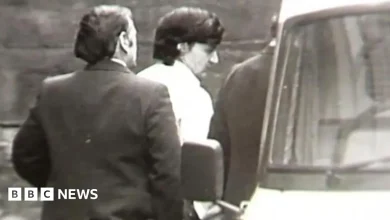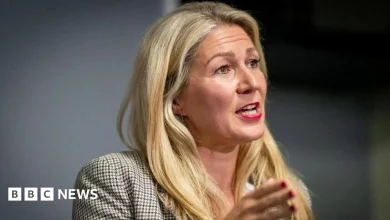Asif Kapadia on the challenges of finding unseen footage for ‘Kenny Dalglish’ documentary

Asif Kapadia has talked about the hurdles of finding never seen before footage for his latest feature documentary Kenny Dalglish, about the Liverpool FC legend.
He was speaking at the Rome Film Festival, where the film premired, alongside producer Chris Clark and Italian editor Matteo Bini. The film is produced by Lafcadia Productions and Calculus Media, in association with RedRum Films.
Partly narrated by Dalglish himself, the film draws from extensive archival footage to retrace the life and career of the former Liverpool and Celtic player, spanning from victories to tragedies. Kapadia, whose past work includes documentary projects on sports and music stars, Senna, Amy and Diego Maradona, described the project as deeply personal.
“I grew up in London, a poor part of the city, and my favourite team was Liverpool,” said Kapadia. “Kenny was my first hero. I had his poster on my wall. But the film grew beyond him and it became about the country, the politics, the corruption, and the spirit of working-class communities fighting the establishment.”
The said he was to make the film while Dalglish is still alive. “He’s not someone who speaks much about himself, but he deserves to feel the love and respect from fans and from people who know what he did at Hillsborough. He was there for everyone.”
The documentary also aims to educate a younger generation less familiar with Dalglish, who retired as a player in 1990 and last managed Liverpool in 2012. “My kids know him from the FIFA video game, next to Maradona and Pelé,” said Kapadia. “But they’ve never seen him play. Football history seems to begin in 1992. That’s not right”.
The detective work behind rare footage
Editor Bini, who previously worked on Kapadia’s Diego Maradona, brought an essential outsider’s perspective. An Inter Milan fan with no prior connection to Liverpool or Dalglish, Bini approached the material without preconceptions. “Having someone like Matteo who didn’t grow up with this story forced us to explain things more clearly,” said Kapadia. “He kept asking the questions that we, as fans, weren’t asking anymore.”
Bini stressed the challenges of sourcing material from a pre-digital era. “At first we didn’t know if we’d have enough to tell this story,” he said. “I ended up tracking down a forgotten cache of 100 film reels originally held by Celtic, which we discovered through an old blog post and followed from buyer to buyer. It became a real investigation, and that is the journey of making a documentary such as this one.”
Following the filmmaker’s signature archival-only approach, Kenny Dalglish does not use contemporary interviews on camera. “You never leave that world,” said Bini. “That’s what makes it powerful”. That world is one very different from today’s football landscape, as noted Clark: “That generation was the first to rise from street football to become true international stars. Kenny embodied that transition more than anyone else in the UK during the 1970s and 1980s”.


![Kibice Widzewa pokazali, co myślą o swoich piłkarzach. Mocne hasła [ZDJĘCIE]](https://cdn1.emegypt.net/wp-content/uploads/2025/11/Kibice-Widzewa-pokazali-co-mysla-o-swoich-pilkarzach-Mocne-hasla-390x220.)


